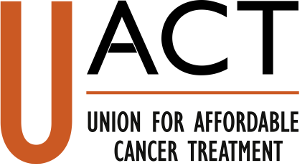The following is the UACT Statement on the July 26, 2018 draft of the NCD outcomes document.
July 30, 2018
Today, for patients, their families and caregivers, it is clear that the prices of medicines for cancer and other non-communicable diseases are excessive, and that access to both new and even many older medicines is both restricted and shockingly unequal. None of these core truths is reflected in this draft declaration. It is obvious that the United Nations and the negotiators have been manipulated by the pharmaceutical manufacturers’ lobby to craft a weak and ineffective resolution that fails to address the most important challenges in access to medicines. Repeated references to partnerships with pharmaceutical companies seem designed to obscure that it is the industry that is the core of the problem. What is tragically lacking is a clear recognition that medicine prices block access, create financial distress for patients, and drain resources from already cash-strapped government health programs.
Negotiators should state the truth about the current crisis in affordability and access, and then specify and endorse measures that will begin to address the problems. We have asked the negotiators to follow the lead of the UN Secretary General’s High Level Panel on Access to Medicine and propose mechanisms to make R&D costs more transparent, and to explore new business models for drug development that progressively delink the incentives for R&D from the prices of treatments. Also, we note that treatment may be revolutionized for some types of cancer, if recent advances in cell and gene based treatments scale to additional cancer indications. The prices of, and access to these new treatments are even more outrageous and unequal than for new cancer drugs and vaccines, and none of these issues are adequately reflected in this declaration.
This is a weak declaration that will no doubt appease the biopharmaceutical industry. But it will not only leave the families of patients heartbroken, their caregivers disappointed, and many governmental health programs in financial crisis, it will also ensure that many patients suffer and die prematurely.
We are appalled.
